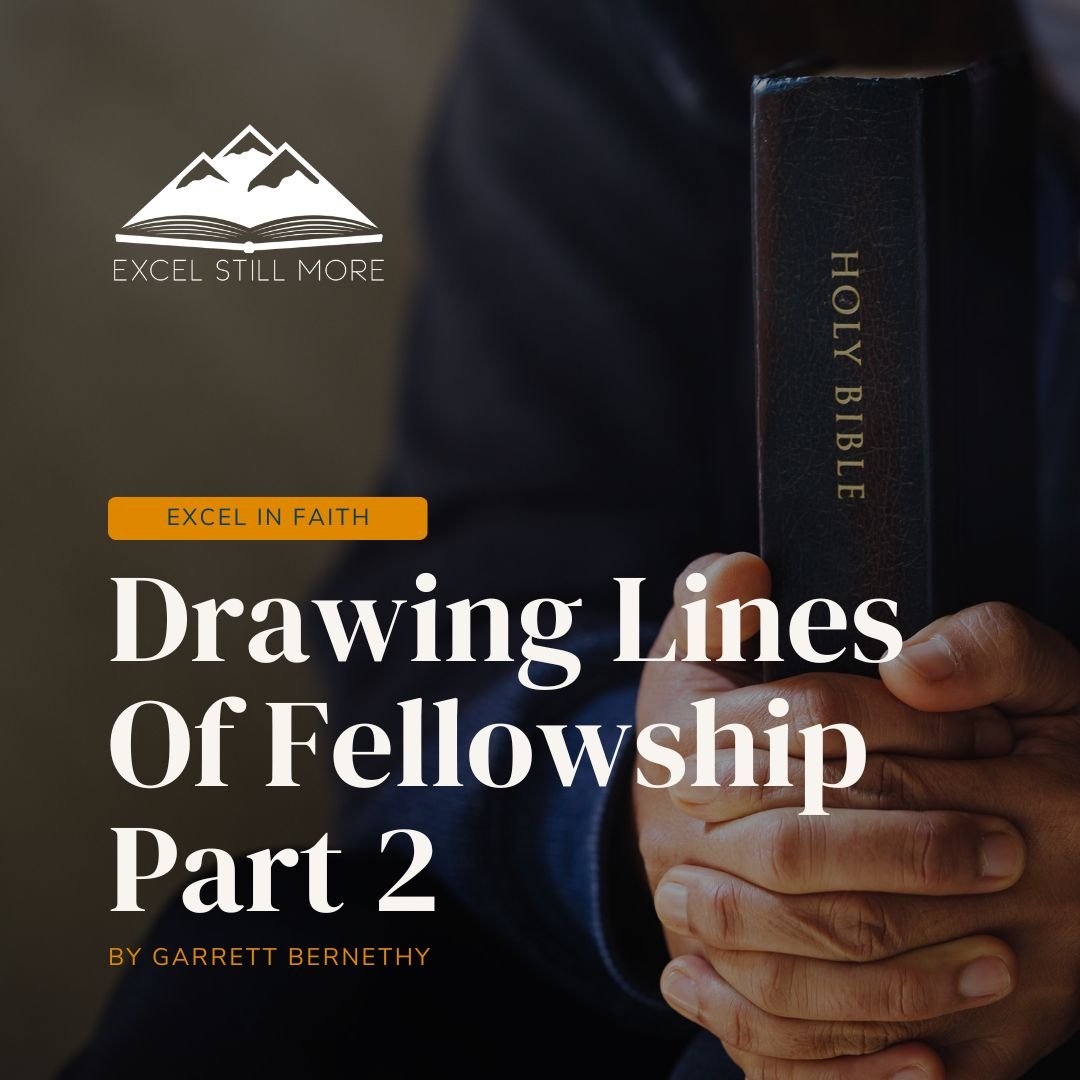What is doctrine? That is the real question, isn’t it? In today’s world, many use the word “doctrine” and spread it in different ways. But before we can rightly apply it, especially in discussions of division and fellowship, we must understand what doctrine truly is—and what it is not.
In my last article, we discussed opposition, which we defined as “the way we feel when someone or something opposes our belief system, traditions, or ways of thinking.” In this article, we turn to the doctrinal aspect of fellowship and consider how it may or may not affect us as the body of Christ.
At its core, doctrine simply means teaching. It is not a complex word. Spiritually, it refers to the Word of the Lord revealed through the prophets and Christ Himself (Heb. 1:1–2). This teaching is the Gospel: the story of Christ’s redemptive work—His death, burial, resurrection, and the teachings He entrusted to His apostles (Eph. 3:3–5).
The word doctrine comes from the Greek διδασκαλία (didaskalia), used fourteen times in the New Testament, meaning teaching or instruction. BDAG defines it this way, and even Merriam-Webster preserves this sense in its older usage.
So when we talk about doctrine, we are talking about the teachings of Christ as they relate to the people of God—His Church, established at Pentecost (Acts 2). The Church is His body (Col. 1:18), composed of those baptized into Christ for the forgiveness of sins (Acts 2:38), added by God Himself (Acts 2:47), and transferred into the kingdom of His beloved Son (Col. 1:13).
These teachings, contained in γραφή (graphe, Scripture), are not mere writings. They are the very words of God. Jesus constantly appealed to Scripture—whether resisting Satan in Matthew 4 (“It is written”) or correcting the Pharisees (Matt. 22:29). Scripture carries the Gospel, which Paul calls “the power of God unto salvation” (Rom. 1:16). Paul reminds Timothy that “all Scripture is inspired by God and profitable” for equipping the man of God (2 Tim. 3:16–17).
And these Scriptures include the Law, Prophets, and Psalms—all pointing to Christ (Luke 24:44). The entire canon, old and new, is the Word of the Lord. Within it lies doctrine: the teaching of the Gospel that saves and instructs.
But here is the key: not every teaching carries eternal weight. Some matters determine salvation—whether one obeys the Gospel or rejects it. Others, while important, do not determine whether a soul will be in heaven or lost. For example, debates about the indwelling of the Holy Spirit, the new heavens and new earth, or even the existence of giants, do not carry eternal consequences.
This distinction is vital. Issues with eternal weight—obedience to the Gospel, living a holy life, avoiding sin—determine our standing before God. Issues without eternal weight, while interesting or even important, must not become lines of fellowship. Sadly, much division has arisen not because of core Gospel truths but because matters of opinion or tradition have been elevated to “salvation issues.”
Consider Guy N. Woods and Gus Nichols, two great gospel preachers who debated the Spirit’s indwelling. Though they disagreed, they remained in fellowship. Why? Because they knew the matter did not affect one’s salvation. Their example teaches us that unity must not be broken over issues without eternal weight.
The problem often lies in our paradigms and traditions. We view Scripture through the lens of what we have always believed or practiced, and when someone differs, we see it as an attack on doctrine itself. This is not the way Christ intended. The real danger is when we elevate personal convictions above the Word of God, creating division where God has not.
Take 1 Thessalonians 4:13–17 as an example. Many argue over the details of judgment day—whether we go immediately to heaven or wait in paradise. Yet Paul’s main point is clear: “We will always be with the Lord” and “comfort one another with these words.” Likewise, in 2 Peter 3, the central call is not speculation about the “new heavens and new earth” but the exhortation: “What sort of people ought you to be in holy conduct and godliness” (v. 11).
Division arises when we miss the main point. When our traditions and paradigms outweigh fellowship, we create a self-centered religion built on personal preferences instead of God’s truth. And that is exactly what Satan desires—that we divide over doctrines of no eternal consequence.
Christianity is not about being “right” on every speculative point. It is about bearing fruit through faith, encouraging one another, and walking worthy of the Lord (Col. 1:10; 1 John 5:1–3). Disagreement on non-essential matters can even be healthy, spurring deeper study and growth together.
So let us be humble, willing to study together, and careful not to let pride or tradition divide us. True doctrine—God’s teaching—calls us to love Him, obey His commands, and remain united in Christ. Our goal is not to be right in our own eyes but to be right with the Lord, helping others do the same.

